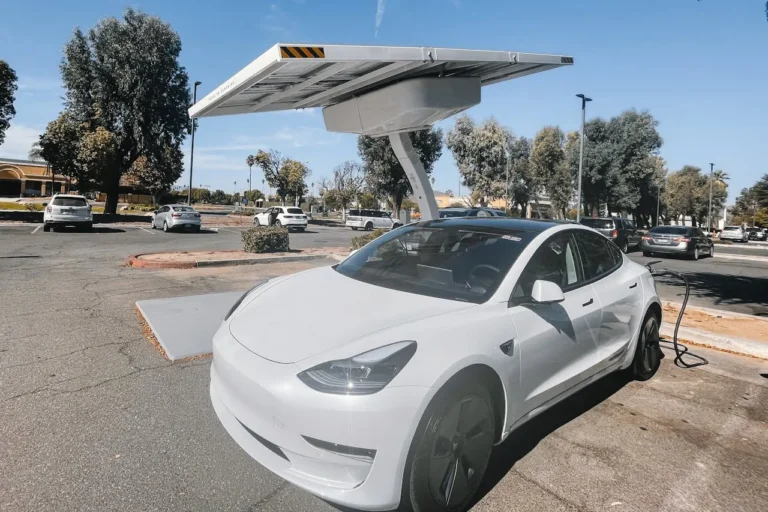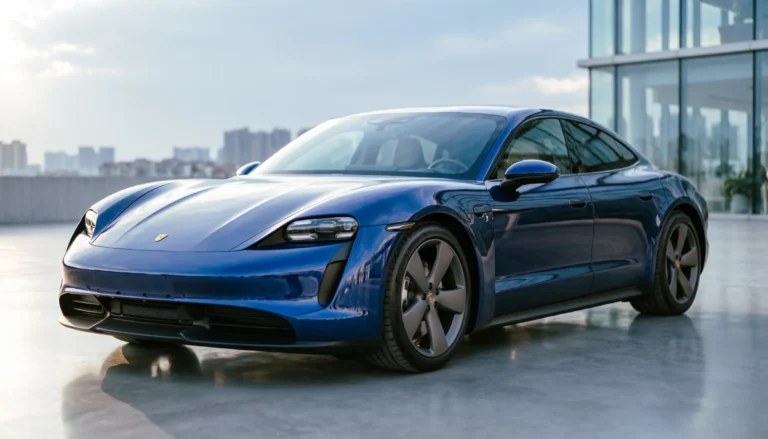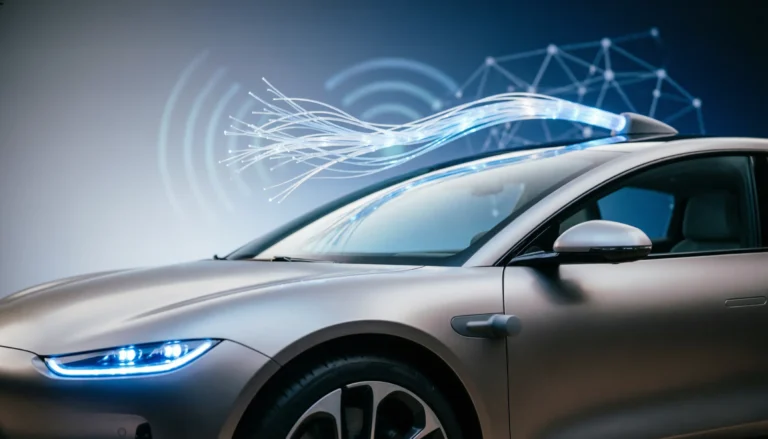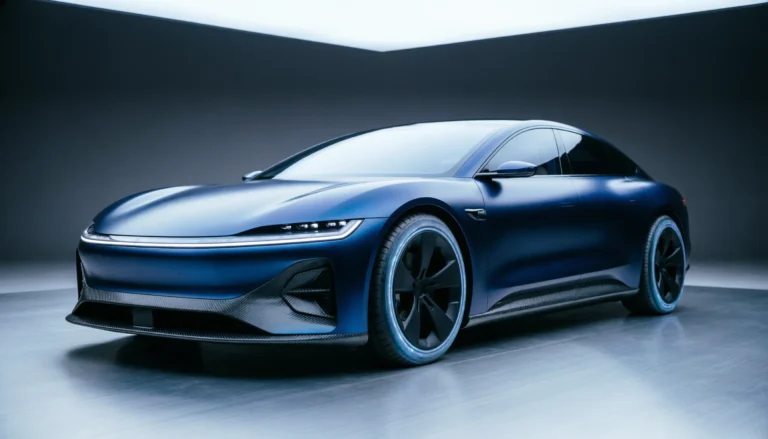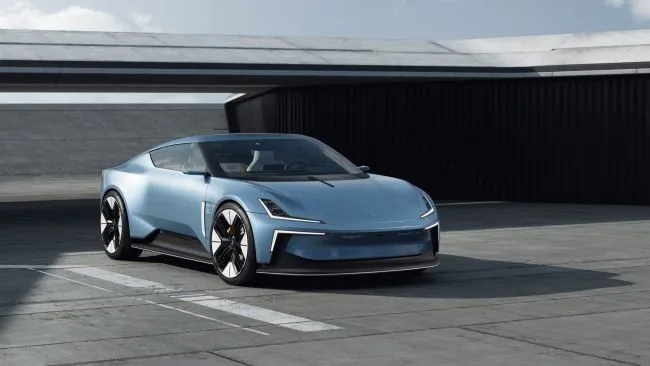
Polestar’s 2024 Sustainability Report Highlights 25% Cut in Emissions per Vehicle and Progress Toward Climate Neutrality
Polestar the Swedish electric performance car brand, has released its fourth Annual Sustainability Report, underscoring measurable progress toward its climate goals. With a firm commitment to environmental stewardship and innovation, the company announced a 24.7% reduction in greenhouse gas (GHG) emissions per vehicle sold since 2020. This milestone marks a significant step in ’s long-term goal to become climate neutral by 2040.
The 2024 report details the company’s latest advancements in lowering emissions, increasing material circularity, promoting transparency in supply chains, and fostering inclusion in its operations. It also provides key updates on the 0 project—an ambitious initiative launched in 2021 to develop a truly climate-neutral car by the end of the decade.
Decoupling Growth from Emissions
At the core of Polestar’s strategy is the concept of decoupling business growth from environmental impact. According to Polestar CEO Michael Lohscheller, the company is proving that it’s possible to grow sales while shrinking its carbon footprint.
“Polestar has shown that it is possible to decouple growth from climate impact,” said Lohscheller. “In simple terms, we aim to continue to cut emissions as we accelerate sales. Even though much in the world seems to be going in the wrong direction, we are doubling down on our commitments. When the world zigs, Polestar zags.”
This bold approach reflects Polestar’s belief that automakers must take decisive action to combat climate change, even in the face of global uncertainties and economic pressures.
Key Drivers Behind Emissions Reductions
Since the company began emissions tracking in 2020, Polestar has achieved nearly a quarter reduction in carbon emissions per vehicle. Several strategic initiatives have contributed to this result:
- Use of Low-Carbon Aluminum: Polestar has increased the use of low-carbon aluminum across its vehicle lineup. Aluminum production is typically energy-intensive, but sourcing it from renewable-powered smelters has helped drive down emissions significantly.
- Battery Manufacturing Improvements: Advancements in battery production processes and more efficient energy sourcing have played a vital role. Batteries are one of the largest contributors to a vehicle’s carbon footprint, making improvements in this area especially impactful.
- Renewable Electricity in Manufacturing: All Polestar models are now manufactured using 100% renewable electricity. This transition supports a lower cradle-to-gate carbon footprint and strengthens the company’s broader energy transition efforts.
- Optimized Logistics and Biofuel Use: Polestar has enhanced logistics efficiency and increased the use of biofuels on specific ocean shipping routes, further minimizing transportation-related emissions.
Advancing the Polestar 0 Project
One of the company’s most ambitious initiatives remains the Polestar 0 project—a moonshot goal launched in 2021 to develop a truly climate-neutral vehicle by 2030. Rather than relying on carbon offsetting, the project seeks to eliminate emissions throughout the entire production process.
Polestar and its project partners report meaningful progress. Through collaborations with suppliers, researchers, and engineers, the initiative has already identified low-carbon solutions that could reduce the carbon footprint of the Polestar 2 by 10 metric tonnes compared to its 2020 launch edition. Specifically, the carbon footprint of the Polestar 2 Long range Dual motor variant could drop from 26 tonnes to just 16 tonnes of CO₂-equivalent emissions if these solutions are fully implemented.
Aluminum and steel—materials that together account for roughly 45% of the car’s cradle-to-gate emissions—are central to this decarbonization push. Cleaner production techniques and alternative materials have emerged as pivotal tools in reducing environmental impact at the source.
Mission 0 House: A Hub for Sustainable Innovation
As the Polestar 0 project advances, its structure is evolving to deepen scientific research and collaboration. A key development is the establishment of the Mission 0 House, a new research center located in Gothenburg, Sweden. This initiative will serve as a collaborative innovation hub where industry experts and academic scientists work side-by-side to eliminate GHG emissions from materials, products, and manufacturing processes.
The Mission 0 House is driven by a principle of open innovation, with a strong focus on developing commercially viable solutions. These breakthroughs will not only benefit Polestar but have the potential to transform the broader automotive and manufacturing industries.
Transparency and Responsible Sourcing
Polestar continues to lead in transparency, with detailed disclosures on material sourcing, supply chain traceability, and ethical labor practices. In 2024, the company joined the Initiative for Responsible Mining Assurance (IRMA), reinforcing its commitment to ethically sourced raw materials.
The automaker also expanded onsite audits in high-risk regions and extended the traceability of critical risk materials. New mapping efforts now include manganese—an essential element in battery manufacturing—alongside previously tracked materials like cobalt and lithium.
Polestar’s digital traceability tools help ensure that materials used in its vehicles are ethically sourced, and the company is working toward full traceability for all battery components.
Promoting Circularity in Materials
In its pursuit of a circular economy, Polestar continues to explore ways to increase the recycled content in its vehicles. The latest Polestar 4 model contains 10% recycled materials, and the company is working to boost this figure through design updates and model year enhancements.
This focus on circularity is essential to reducing resource extraction and minimizing waste. From vehicle design to end-of-life planning, Polestar aims to create systems that support reusability, recyclability, and long-term sustainability.
A Global Brand with a Climate Mission
Polestar operates in 27 markets globally, spanning North America, Europe, and the Asia-Pacific region. Its growing vehicle lineup includes the 2, 3, and 4, with the upcoming 5 four-door GT and Polestar 6 roadster expected in the coming years. A compact SUV, the 7, is also in development and will be manufactured in Europe, further expanding the company’s global production footprint.
Despite its rapid expansion, remains laser-focused on sustainability. Its roadmap calls for halving GHG emissions per vehicle sold by 2030 and achieving full climate neutrality by 2040—goals that are among the most ambitious in the automotive sector.
To achieve this, the company continues to align its operations with four core sustainability pillars:
- Climate: Measurable reduction of emissions across the value chain.
- Transparency: Honest reporting on environmental and social impacts.
- Circularity: Maximizing the value of materials through reuse and recycling.
- Inclusion: Ensuring fair labor practices and equity throughout the supply chain.


